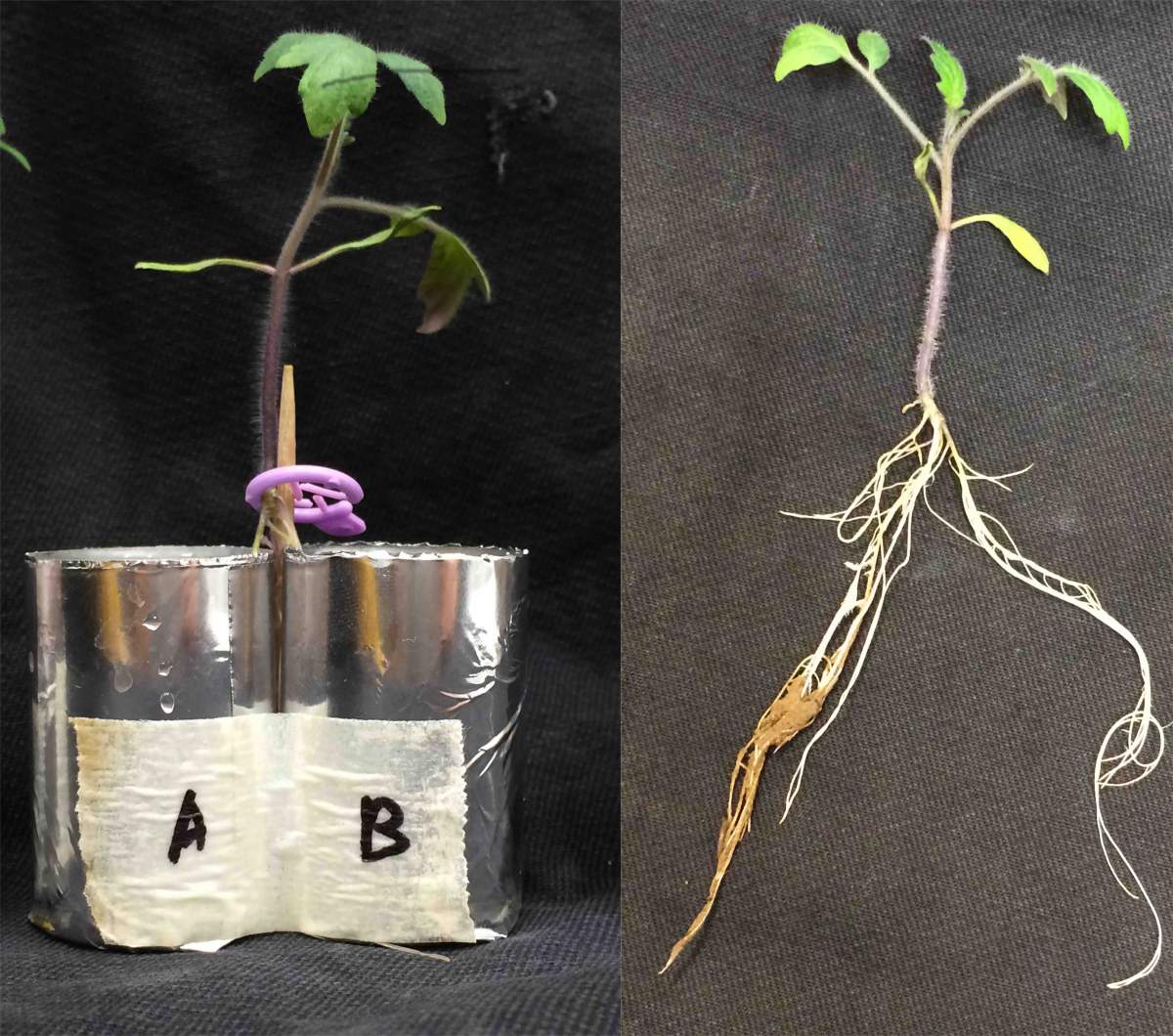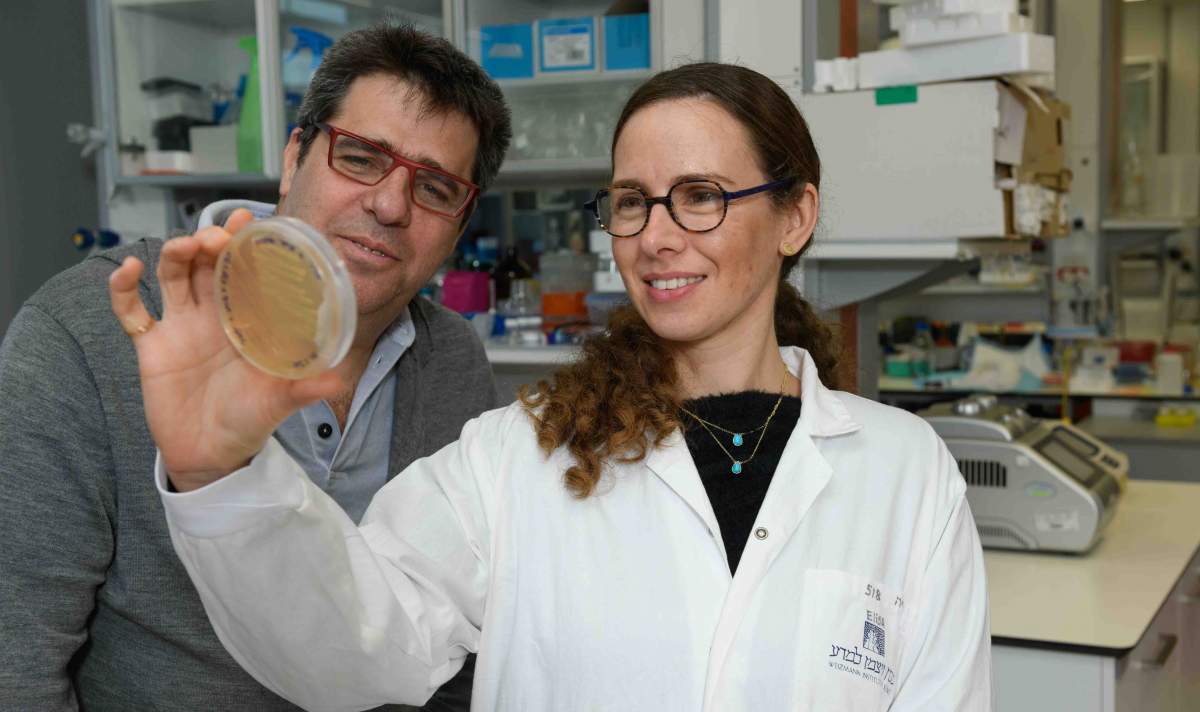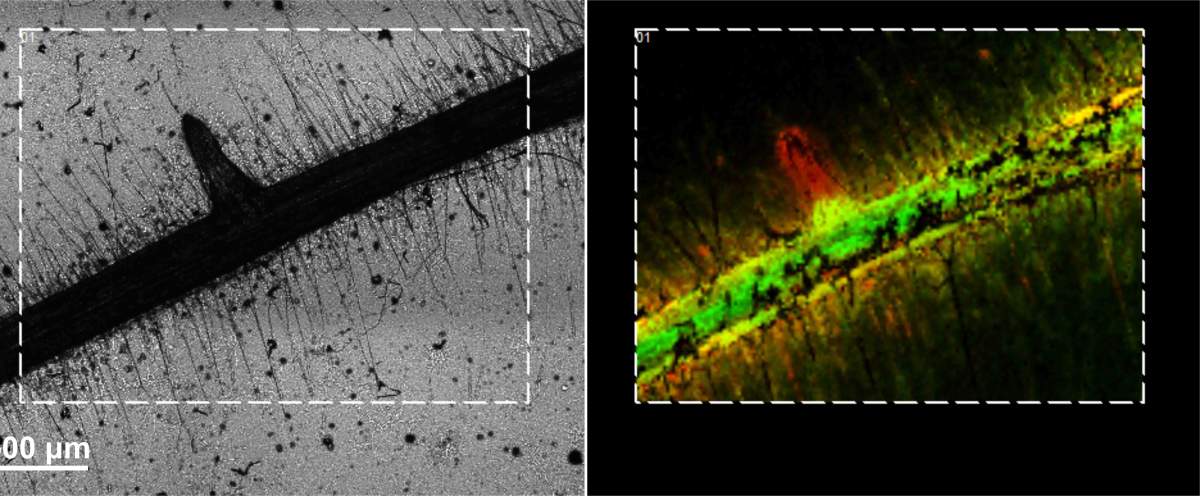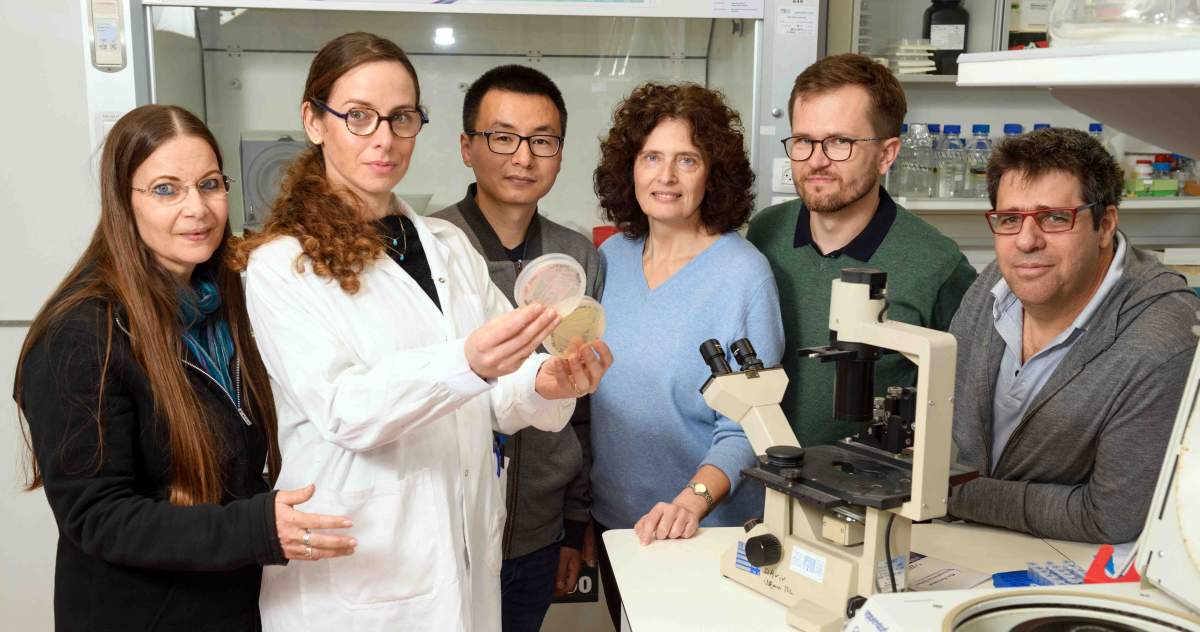Are you a journalist? Please sign up here for our press releases
Subscribe to our monthly newsletter:

Plants “talk” to the soil: By secreting various substances from their roots, they affect the composition of soil microbes. A recent study by researchers at the Weizmann Institute of Science has revealed that the reverse is also true. In other words, the soil talks back to the plants: The microbes it contains affect the plant’s metabolism and the secretion of various molecules by its roots. These findings, reported in the Proceedings of the National Academy of Sciences (PNAS), may help scientists further decipher the language of soil-plant communication and enhance the production of plant-derived medicinal substances.
The narrow strip of soil around the plant’s root teems with millions of microorganisms, making it one of the most complex ecosystems on earth. To determine whether the composition of this “root microbiome” triggers changes within the plant, postdoctoral fellow Dr. Elisa Korenblum and other members of a team headed by Prof. Asaph Aharoni of Weizmann's Plant and Environmental Sciences Department, created a hydroponic set-up in which they split the roots of tomato seedlings in two. In a series of experiments, the researchers placed one side of the split roots in vials, progressively diluting the soil suspensions several times. Each dilution altered the soil’s microbial composition and reduced the diversity within the microbial community, so that the different suspensions ended up containing root microbiomes with high, medium and low diversity levels. The other side of the roots was submerged in a vial with a clean, soil-free solution.

If the soil microbes communicate with the plant, one would expect to detect signs of their messages on both sides of the root system. That was exactly what the scientists found.
A week later, when the team used high-resolution mass spectrometry to analyze the substances secreted by the roots on the clean side, they found that these secretions differed in accordance with the composition and diversity of soil microbes on the dirt side. For example, a massive presence of bacteria from the genus Bacillus in the soil suspension triggered increased production of acylsugars ‒ sticky substances capable of trapping insects ‒ in roots on the clean side. In fact, the microbial composition of the soil affected the metabolism of the entire plant, altering the levels and distribution of more than 170 metabolites, as well as the expression of different genes in the shoot and root tissues.
“We showed that signals from the soil microbes travel via a long-distance line of communication within the plant, reprogramming its metabolism and eventually altering its secretions from the roots,” Aharoni says. “These secretions are most likely to affect the colonization of the surrounding soil by beneficial bacteria.”

Seeking to establish how the microbe-induced signals travel throughout the plant, the scientists zeroed in on azelaic acid – an organic compound reported to play a role in the plant’s defensive responses – as a potential signaling molecule. After adding azelaic acid to the soil on one side of the tomato roots, they later found molecules of this acid on the other, clean side. They also detected changes in root secretions that had been triggered by the acid.
“Our ultimate goal is to decipher the chemical language – one could call it ‘Plantish’ – used by plants and the soil to interact with one another,” Korenblum says. “Azelaic acid is probably one of the ‘words’ of this language.”
Root secretions – which use about 50% of the energy produced by photosynthesiswithin the entire plant – can strengthen a plant’s defenses and facilitate its nutrient uptake, among other vital functions. A better understanding of the way soil microbes affect these secretions might enable scientists to manipulate them on demand, helping the plant to beneficially condition the environment around its own roots.
Moreover, these manipulations can boost the production of plant-derived substances used in the pharmaceutical, cosmetics and other industries. For example, the Weizmann scientists have already shown that by altering the chemical environment of the roots, they were able, in laboratory conditions, to increase the plant secretions of such cancer-fighting substances as paclitaxel (Taxol) and vinca alkaloids.
The research team included Dr. Yonghui Dong, Dr. Jedrzej Szymanski, Dr. Sayantan Panda, Dr. Adam Jozwiak, Dr. Hassan Massalha, Dr. Sagit Meir and Dr. Ilana Rogachev.

Prof. Asaph Aharoni is Head of the Vera and John Schwartz Family Center for Metabolic Biology. His research is also supported by the Benoziyo Endowment Fund for the Advancement of Science; the Henry Chanoch Krenter Institute for Biomedical Imaging and Genomics; the Mary and Tom Beck-Canadian Center for Alternative Energy Research; the André Deloro Prize; the Tom and Sondra Rykoff Bioinformatics Facility for Plant Sciences; David E. and Sheri Stone; Dana and Yossie Hollander; the Sklare Family Foundation Cannabis Research Fund; the Yotam Project; the estate of Helen Nichunsky; the estate of Emile Mimran; and the estate of Betty Weneser. Prof. Aharoni is the incumbent of the Peter J. Cohn Professorial Chair.